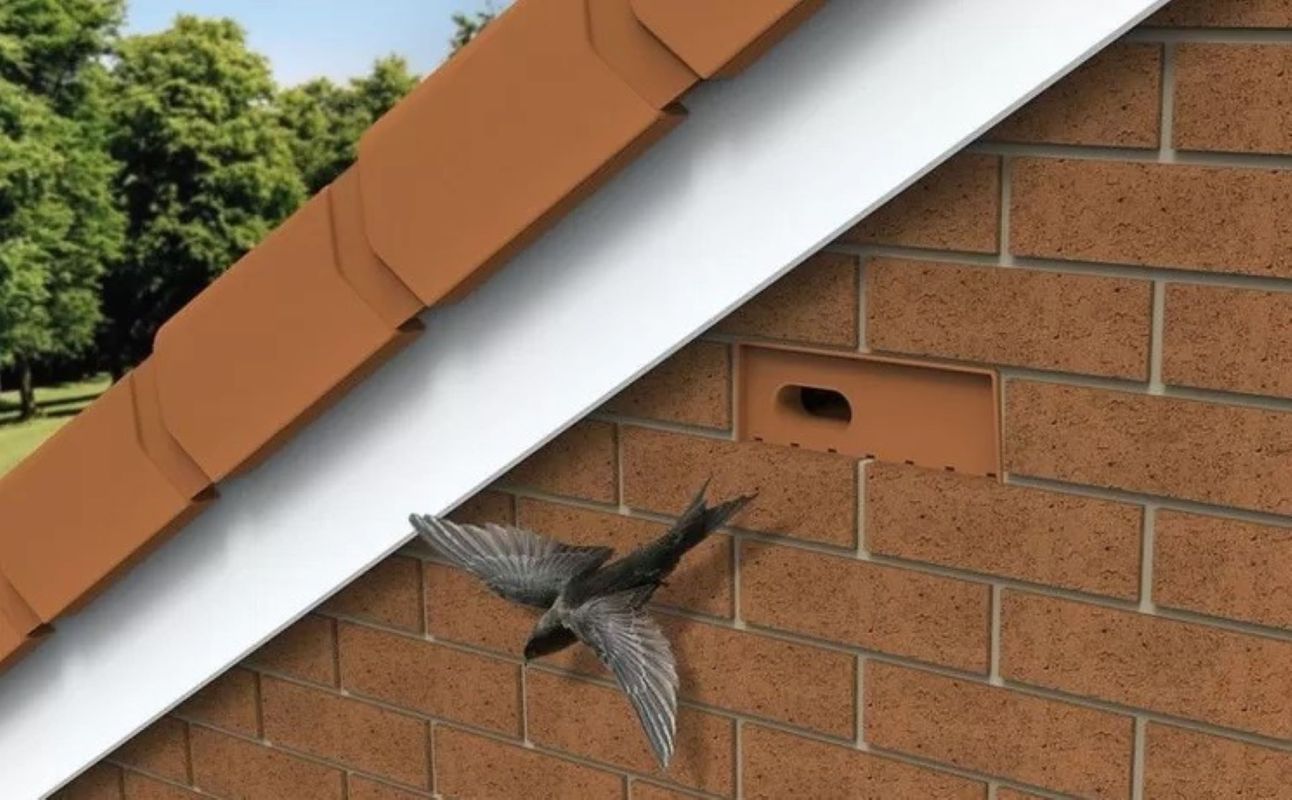Endangered birds like nesting swifts are in desperate need of more homes — and companies like Manthorpe Building Products are providing simple birdhouse bricks to help them spread their wings.
Swifts spend 10 months a year either entirely or almost entirely in the sky, according to the Guardian. They eat, sleep short periods, and mate while totally airborne, and only return to land for a few months to lay eggs and raise their young. The birds continually return to the same nesting spots for years.
Due to causes like shrinking insect populations and architectural renovations in buildings where the birds nest, researchers have seen the number of swifts rapidly decrease, dropping 60% since 1995, according to the British Trust for Ornithology.
"Swifts are our closest wild neighbors and the poster children of biodiversity," Hannah Bourne-Taylor, creator of a petition to make the bricks mandatory in the United Kingdom, told the Guardian. "If they lose, we lose."
To combat the nesting problem, companies like Manthorpe have developed a hollow brick with a small hole inside that provides space for swifts to nest. The company has already produced 20,000 bricks so far, and it takes a little under one minute to make the bricks out of recycled plastic, according to the Guardian. Manthorpe's bricks have several subtle features that make them more bird-friendly, such as drainage channels and a concave dish to streamline nest building, the Guardian also reported.
Some British communities have already passed legislation that requires new housing projects to include swift bricks — and more than 100,000 people supported Bourne-Taylor's petition to make swift bricks a national mandate, according to the Guardian.
"The great advantage of swift bricks and boxes is that they can work just as well in inner-city areas with very little green space as anywhere else," Guy Anderson, the migratory birds program manager for the Royal Society for the Protection of Birds, told the Guardian. "Swifts can travel pretty long distances to find their insect food — all they need is a nest site."
Join our free newsletter for cool news and cool tips that make it easy to help yourself while helping the planet.









